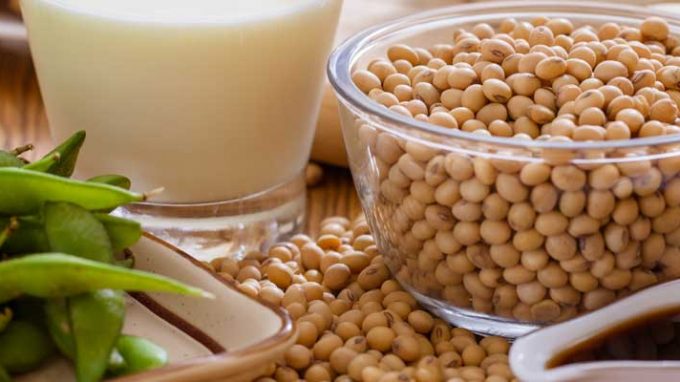When it comes to soy and fertility there is no clear-cut answer as to it’s benefits, side effects and effectiveness—positive or negative.
Studies show that one in eight couples struggle with infertility. With the numbers being so high, chances are that almost everybody knows someone who has wrestled with this issue. New research shows that, despite previous theories that soy can be a direct contributor to infertility, soy can help with treating infertility. While there are numerous treatments out there, using an all natural product that doesn’t have the risks or side effects or costs of other options, is a cost effective option worth perusing.
Conflicting Studies
Despite this new study, in the past, soy foods and other legumes have been considered to have a negative effect on fertility due to their composition of phytoestrogens called isoflavones, the two primary types of which are daidzein and genistein, which act as both estrogen and antiestrogens in the human body. All of this breaks down to a finding that scientists have found that links estrogen components in soy and infertility.
How Soy Could Potentially Fix Infertility
While some experts caution that ingesting highly concentrated soy products may inhibit fertility by throwing a functional menstrual cycle out of whack, soy is being widely studied for its ability to protect endocrine disruptors in the body. Bisphenol A (BPA) is one of the major disruptors. This is the first study in humans that shows that soy might mitigate the harmful effects of BPA.
BPA is often found in plastic water bottles, and during routine screenings, officials found that more than 90 percent of people in the US have BPA in their urine. BPA exposure is known to cause reproductive disorders. Statistics show that those who consume this natural substance are known to have a 50 percent higher chance of having a live birth among those who didn’t. Harvard TH Chan School of Public Health conducted the study and their conclusion showed a direct correlation between soy and BPA. In the study, women who did not eat soy and had the highest levels of urinary BPA had live birth rates of 17 percent, compared with a rate of 49 percent in women who ate soy and had the highest levels of urinary BPA. Endocrine problems are one of the number one reasons for infertility, however, this new research shows a glimmer of hope for those dealing with infertility struggles.
There are numerous reasons why infertility occurs and there is no one method that works for everyone. However, the evidence that shows a diet modification and reduction in items that have BPA in them will only help. Sometimes, infertility is marked as “unknown,” which means all the testing shows no specific reason why this couple cannot conceive. Whatever the reason, it is difficult to deal with the desire to be a parent and the inability to do so. Changing the diet is the easiest way to make positive changes that can have a favorable outcome.




